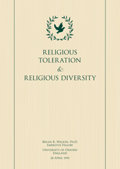Recent decades have seen the growth in number of both world-affirming and world-renouncing religions (and of others less readily categorized in these broad dichotomous terms). The world-renouncing religions have arisen in protest against what they have tended to see as the growing materialism, consumerism, and hedonism of western society. Some of them owe their orientations to the ascetic tradition of Christianity, others have found some affinity with environmental concerns, yet others have drawn on the same climate of mood that gave rise to the “hippy” culture of the 1960s. In contrast, world-affirming orientations manifest strong continuities with contemporary secular culture, and with some of the changed dispositions evident in twentieth-century Christianity. As religious concerns have shifted from the preoccupation with the afterlife, which was the dominant focus of Christianity in previous centuries, so new religious movements have also come to emphasize the idea of salvation in this world and in the present lifetime. Life-enhancement, the pursuit of happiness, the realization of human potential have become respectable and widely endorsed goals, and it is not surprising the new religions should have embraced them. In a world of scarcity, natural disaster, famine, and low levels of technology, religious asceticism was a congruous ethic. It complemented the needs of a producer society in which hard work and low returns had to be accepted, in which gratifications had to be postponed (often to a hypothesized afterlife) so that capital might be accumulated. But in a society oriented to consumption, in which technology has produced enhanced expectations of the wealth and benefit to be experienced, an ascetic ethic would run counter to the need to induce people to bolster the economy by spending, by seeking entertainment and material well-being. Just as the traditional asceticism of Christianity became outmoded, so the orientations of new patterns of religious spirituality came to reflect the new social ethos. The contemporary currency of hedonistic values in secular society has been increasingly reflected even in mainstream religion. The optimism and emphasis on unlimited benefit canvassed, outside the mainstream, by Christian Science, was followed, within the major denominations, by the advocacy of positive thinking by Norman Vincent Peale, a Protestant, by Monsignor Fulton Sheen, a Catholic, and by Rabbi Joshua Liebman. More recent decades have seen the development of Prosperity Theology as a legitimization of the benefits which Christians should expect from prayerful religion. Psychological techniques for heightened self-control, self-awareness, self-improvement, life-enhancement and a wider capacity for spiritual enrichment have become part of the repertoire of many religious movements as society has moved away from endorsement of sin-laden theologies that were once the central theme of Christian teaching.
XXIX. The Ethos of Contemporary New Religions

Scientology, Social Science and the Definition of Religion
by James A. Beckford, Professor of Sociology, University of Warwick, England

Social Change and New Religious Movements
by Bryan R. Wilson,
Emeritus Fellow in Sociology, Oxford University

The Church of Scientology
by Juha Pentikäinen, Marja Pentikäinen, University of Helsinki, Finland

The Relationship Between Scientology and Other Religions
by Fumio Sawada, Eighth holder of the secrets of Yu-itsu Shinto, the oldest religion in Japan; President, Ahlul-Bait Center

The Religious Nature of Scientology
by Geoffrey Parrinder, Methodist minister, Professor, Comparative Study of Religions, University of London

Religious Philosophy, Religion and Church
by G.C. Oosthuizen, Professor of Science of Religion, University of Durban-Westville, Natal, South Africa

Scientology a New Religion
by M. Darrol Bryant, Department of Religious Studies, Renison College, University of Waterloo, Ontario, Canada

Apostates and New Religious Movements
by Bryan R. Wilson,
Emeritus Fellow in Sociology, Oxford University

Scientology: An Analysis and Comparison of its Religious Systems and Doctrines
by Bryan R. Wilson,
Emeritus Fellow in Sociology, Oxford University

The Reliability of Apostate Testimony About New Religious Movements
by Lonnie D. Kliever Ph.D., Professor of Religious Studies

The Sea Organization and its Role Within the Church of Scientology
by Frank K. Flinn Ph.D. Adjunct Professor in Religious Studies

Brief Analyses of the Religious Nature of Scientology
by J. Gordon Melton, Baylor University, Samuel Hill, Gary Bouma, Irving Hexham

Congregational Services of the Church of Scientology
by Bryan R. Wilson,
Emeritus Fellow in Sociology, Oxford University

Is Scientology A Religion?
by Alan W. Black, Associate Professor of Sociology, University of New England, Armidale, New South Wales, Australia

Is Scientology a Religion?
by Dean M. Kelley, National Council of Churches

Religious Toleration & Religious Diversity
by Bryan R. Wilson,
Emeritus Fellow in Sociology, Oxford University

Scientology A Religion In South Africa
by David Chidester, Professor of Comparative Religion, University of Cape Town, South Africa

Scientology: A True Religion
by Urbano Alonso Galan, Professor of Philosophy and Theology, Gregorian University of Rome

Scientology: A Way of Spiritual Self-Identification
by Michael Sivertsev, Moscow Academy of Sciences

Scientology: A Worshipping Community
by Lonnie D. Kliever, Southern Methodist University, Dallas, Texas

Scientology and Contemporary Definitions of Religion in the Social Sciences
by Alejandro Frigerio, Professor of Sociology, Catholic University of Argentina, Buenos Aires

Scientology and Islam an Analogous Study
by Fumio Sawada, Eighth holder of the secrets of Yu-itsu Shinto, the oldest religion in Japan; President, Ahlul-Bait Center

Scientology and Religion
by Christiaan Vonck, Rector, Faculty for Comparative Study of Religion, Antwerp, Belgium

Scientology: A Comparison with Religions of the East and West
by Per-Arne Berglie, Professor of History of Religion, University of Stockholm

Scientology Its Cosmology, Anthropology, System of Ethics and Methodologies
by Régis Dericquebourg, Professor of Sociology of Religion, University of Lille III, France

Scientology – Its Historical-Morphological Frame
by Dario Sabbatucci, Professor of History of Religions, University of Rome

Scientology: Its True Nature
by Harri Heino, Professor of Theology, University of Tampere, Finland

Scientology: The Marks of Religion
by Frank K. Flinn, Adjunct Professor of Religious Studies Washington University

